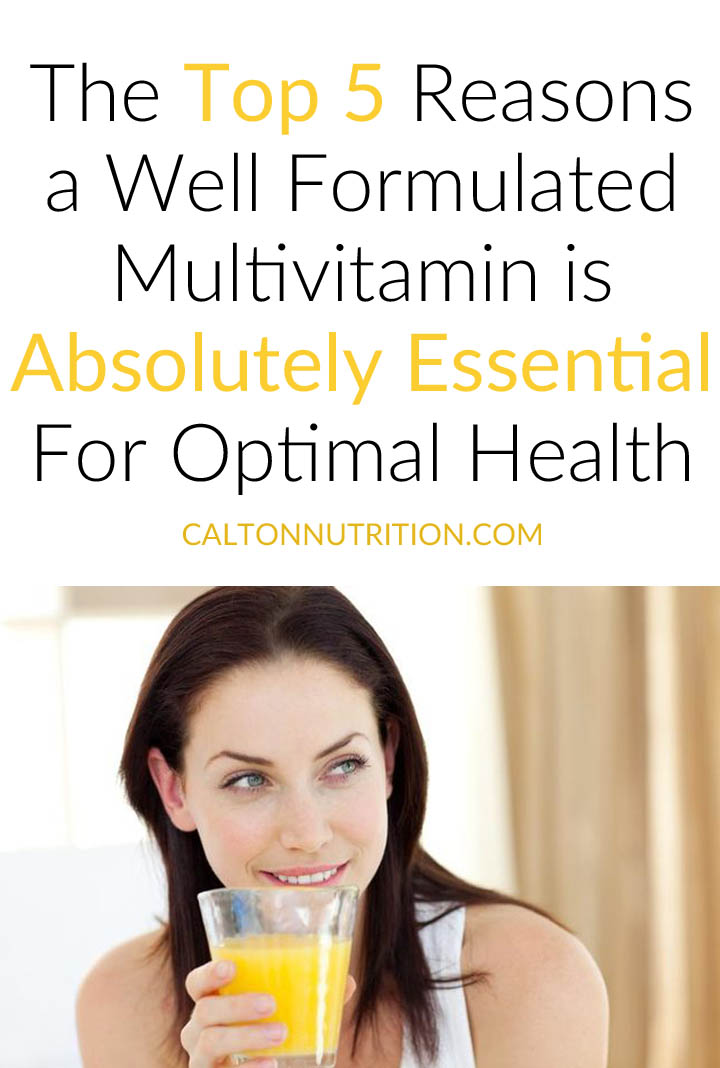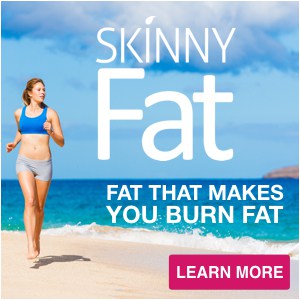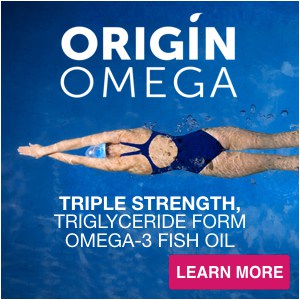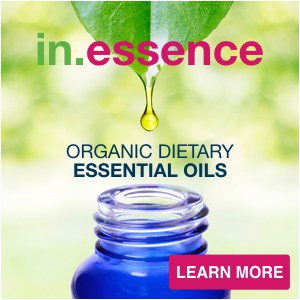We know what you have been told. You don’t need to take a multivitamin because you eat a well-balance diet. Well… HA! While we wish that was true we want to share with you the top 5 reasons that a well formulated multivitamin is absolutely essential for optimal health.
- Modern food is less nutritious than ever before.
Even with the best of intentions your diet is leaving your body lacking in the essential vitamins and minerals that you need everyday in order to live a long healthy life. This is because modern agriculture is designed to increase growth rate and yield not increase quality or nutrition. It is being genetically modified, and grown at a faster and faster rate, which is leading to nutrient poor soil, and in turn is supplying all of us foods that no longer contain the essential nutrients that they did for previous generations. On top of that, the majority of our food is shipped into the US from all over the world. While that makes for a diet rich in international flavors, it doesn’t supply you with a diet rich in essential micronutrients. The fact is that your food’s micronutrient levels are greatly affected by three factors, heat, air, and light. This means that during every minute of every mile that your food is exposed to the hot temperatures of a shipping truck or a cargo ship or the fluorescent lights in a storage warehouse or grocery store, it is losing the very micronutrients you need for good health.
Did you know that the apple in your fridge has 96% less iron, 48% less calcium, 84% less phosphorous and 82% less magnesium than an apple grown only 80 years ago? To find out more …. Read here
- According to the FDA there is more than a 90% chance that you are suffering from a micronutrient deficiency.
In our book Micronutrient Miracle, we share with you the US government reports that show that more than 9 out of 10 individuals are deficient in at least one of the vitamins and minerals essential to maintain human health. According to the published research, 9 out of 10 Americans are deficient in vitamin E and potassium, more than 7 out of 10 are lacking in calcium, and approximately 5 out of 10 are not getting enough vitamin A, vitamin C, and magnesium. In fact, of the seventeen essential micronutrients studied by the USDA, all showed a deficiency rate of some kind.
Are you at risk of the micronutrient deficiency? Take our FREE Personal Micronutrient Sufficiency Analysis to evaluate your risk – START HERE
- You are living in a toxic wasteland.
Think about the dish detergent, stain-resistant chemically coated carpeting, cleaning products, Teflon-coated pans, laundry cleaners, dryer sheets, and air fresheners you come into contact with daily. It really adds up. According to the United Nations Environment Programme, approximately 70,000 chemicals are commonly used across the world, with 1,000 new chemicals being introduced every year. While many of these new industrialized chemicals act as obesogens (pronounced OBESE-O-GENS), disrupting your endocrine system and causing weight gain and hormonal issues, all of them increase your toxic load.
And your body only has two ways of handling this toxic load: Either the toxins wreak havoc in your body—causing thyroid issues, neurological damage, or even cancer—or, preferably, you have enough essential micronutrients around for natural detoxification to occur. As it turns out, micronutrients work as the body’s natural detoxifiers, affecting both the absorption and excretion of these toxic contaminants. So while you may not be able to tell your boss that the air freshener has to go, you can reduce its obesogenic effect by making sure you are sufficient in the essential micronutrients you need to naturally detox – specifically the antioxidants (vitamins A, C, E, and alpha-lipoic acid) as well as magnesium, selenium, and zinc. Zinc is actually an important immune strengthener and tissue healer and is necessary for the functioning of many detoxifying enzymes, thus helping to protect the cells from pollutant toxins.
Curious if you are living in a toxic soup? Find out more here
- You are stressed out!
Stress is something that most, if not all, of us have in our lives more often than we would like. For the majority of people stress comes mostly from the workplace or from home. However, stress hides everywhere. Stress can be hiding even in the most pleasurable situations. On vacation, stress may be lurking at ticket counters, security checkpoints, and at the destination itself (poor weather or lost luggage). However, you may never have considered how these emotions are caused by micronutrient (vitamin and mineral) deficiencies, and that by becoming sufficient in these very same micronutrients you can prevent and/or reverse these feelings all together.
The B vitamins have come to be known as anti-stress nutrients. Vitamins B1 and B5 help fight off stress by maintaining proper function of the adrenal glands (the most important glands in the fight against stress). Both vitamins B6 and B9 help equip you to better cope with the anxiety that you do experience by aiding in the formation of chemicals called neurotransmitters, which are necessary for balancing emotions. Additionally vitamins C, magnesium, calcium, omega-3, and iron also play key foundational roles in alleviating stress. Your multivitamin may just be the key to your piece of mind. In research individuals who took a multivitamin for 30 days experienced a 2/3 reduction in stress and anxiety levels.
Are you stressed out? Then this page is a must for you! Get 3 FREE GIFTS plus 3 BONUS GIFTS today, including our exclusive Micronutrient Miracle Quick Start Guide to Stress, Anxiety & Depression! DE-STRESS HERE!
- Multivitamins can help you live a stronger, more mobile, longer life void of these common health conditions and diseases:
- Difficulty sleeping (2)
- Low energy (3)
- Slow metabolism and weight gain (4)
- Depression or mood swings (5)
- Hormone Imbalance (6)
- Declining memory or brain fog (7)
- Food cravings (8)
- Poor eyesight (9)
- High Cholesterol or Blood Pressure (10)
- Low Immune System (11)
- Osteoporosis or Osteopenia (12)
- Macular Degeneration (AMD) (18)
- Cancer (37)
- Diabetes (37, 39)
Micronutrient deficiency is the most dangerous condition of the 21st century, because modern medical science now knows that when you become deficient in your essential micronutrients you open the door to nearly all of the health conditions and lifestyle diseases currently affecting billions of people worldwide.
Are you struggling with a few extra pounds, an increase in your pants size, or a newly acquired gut that you would like to see go away? Did you know that a vitamin and mineral deficiency might be to blame? READ HERE to learn how to use micronutrients to control your weight.
REFERENCES:
(1) Food Nutrition Has Been Declining! Minerals Go Down, Disease Goes Up! Retrieved 2011, from the Nutrition Security Institute: https://www.nutritionsecurity.org/PDF/Food%20Nutrition%20Decline.pdf
(2) https://www.ncbi.nlm.nih.gov/pubmed/23853635
(3) https://umm.edu/health/medical/altmed/supplement/vitamin-b12-cobalamin
(4) Asfaw A. Micronutrient de!ciency and the prevalence of mothers’ overweight/obesity in Egypt. Econ
Hum Biol. 2007. Dec;5(3):471-483. PMID: 17449338.
(5) https://www.ncbi.nlm.nih.gov/pmc/articles/PMC1810582/
(6) https://www.ncbi.nlm.nih.gov/pubmed/21913492
(7) https://archneur.jamanetwork.com/article.aspx?articleid=774437
(8) Simontacchi C. Mineral De!ciencies And Food Cravings. Retrieved 2011, from the Diabetes Information Library: https://www.diabetesinfocenter.org/View.aspx?url=Article819
(9) https://www.nei.nih.gov/amd/summary.asp
(10) https://journals.cambridge.org/download.php?file=%2FNRR%2FNRR14_01%2FS0954422401000026a.pdf&code=e20d54cde520aa76ef0a6e06d5ccf9fa
(11) https://www.health.harvard.edu/flu-resource-center/how-to-boost-your-immune-system.htm
(12) Iwamoto J, Takeda T, Ichimura S. Combined treatment with vitamin K2 and bisphosphonate in postmenopausal women with osteoporosis. Yonsei Med J. 2003 Oct 30;44(5):751-6.
(13) https://www.ars.usda.gov/Services/docs.htm?docid=15687
(14) Physicians’ Desk Reference 54th edition, 2000. Medical Economics Company. ISBN: 1-56363-330-2. Pg. 1674.
(15) https://www.ualberta.ca/~csps/JPPS9(1)/Loebenberg.R/tablets.htm
(16) https://www.thefreelibrary.com/40%25+of+American+Adults+Report+Experiencing+Difficulty+%20Swallowing…-a0112187875
(17) https://aje.oxfordjournals.org/content/151/9/862.full.pdf
(1) Most multivitamin extras don’t add up. Tufts University Health & Nutrition Letter Feb 1st 2010. Retrieved8 2010, from Goliath:
https://goliath.ecnext.com/coms2/gi_0199-12432585/Most-multivitamin-extras-don-t.html
(19) https://ajcn.nutrition.org/content/68/1/82.long
(20) https://www.arltma.com/Articles/CopperToxDoc.htm
(21) Shrimpton D.H. Dr Derek H Shrimpton, scientific advisor to the European Federation of Health
Product Manufacturers (EHPM) considers the nutritional implications of micronutrient interactions.// Chemist & Druggist. – 2004. – 15 May.
(22) Davies, J. Ostine, D. Partridge “Vitamin C: chemistry and biochemistry” Moscow “Mir”, 1999.–pp.176
(23) Korovina N.А., Zaharova I.N., Zaplatnikov А.L., Obinochnaya Е.G. Children’s vitamin and
microelement deficiency: modern approaches to correction. Manual. Medical Practices -М, 2004
(24) Paltzev M.A., Koukes V.G., Fisenko V.P. “Molecular mechanisms of medicines interaction” AstraPharmService, Moscow 2004, p.224.
(25) Zempleni J, Mock DM. Human peripheral blood mononuclear cells: ; Inhibition of biotin transport
by reversible competition with pantothenic acid is quantitatively minor. J Nutr Biochem. 1999;10(7):427-432. (PubMed)
(26) https://www.ncbi.nlm.nih.gov/pubmed/19832808
(27) https://www.nlm.nih.gov/medlineplus/druginfo/natural/924.html
(28) Serbinova E, Han D and Packer L, Free radical recycling and intramembrane mobility in the
antioxidant properties of alpha‐ tocopherol and alpha‐tocotrienol. Free Radic Biol Med 1991. 10(5): 263‐75.
(29) https://lpi.oregonstate.edu/infocenter/vitamins/vitaminE/
(30) https://www.chiro.org/nutrition/FULL/Lipoic_Acid_Universal_Antioxidant.shtml
(31) https://www.ncbi.nlm.nih.gov/pubmed/12514272
(32) https://ajcn.nutrition.org/content/91/5/1468S.full
(33) https://www.ncbi.nlm.nih.gov/pmc/articles/PMC3096178/
(34) Tordo_ MG, Bachmanov AA, Reed DR. Forty mouse strain survey of voluntary calcium intake, blood
calcium, and bone mineral content. Physiol Behav. 2007. Aug;91(5):632-43. PMCID: PMC2085359.
(35) https://ods.od.nih.gov/factsheets/Magnesium-HealthProfessional/
(36) Willner, P., Benton, D., Brown, E., Cheeta, S., Davies, G., Morgan, J., Morgan, M., Depression increases “craving” for sweet rewards in animal and human models of depression and craving. Psychopharmacology, 136(3):272-83, 1998 Apr.
(37) https://www.ncbi.nlm.nih.gov/pmc/articles/PMC2853984/#!po=26.9231
(38) https://lpi.oregonstate.edu/infocenter/vitamins/vitaminK/
(39) https://www.ncbi.nlm.nih.gov/pubmed/10368310?dopt=Abstract
†These statements have not been evaluated by the FDA. This product is not intended to diagnose, treat, cure or prevent any disease.












